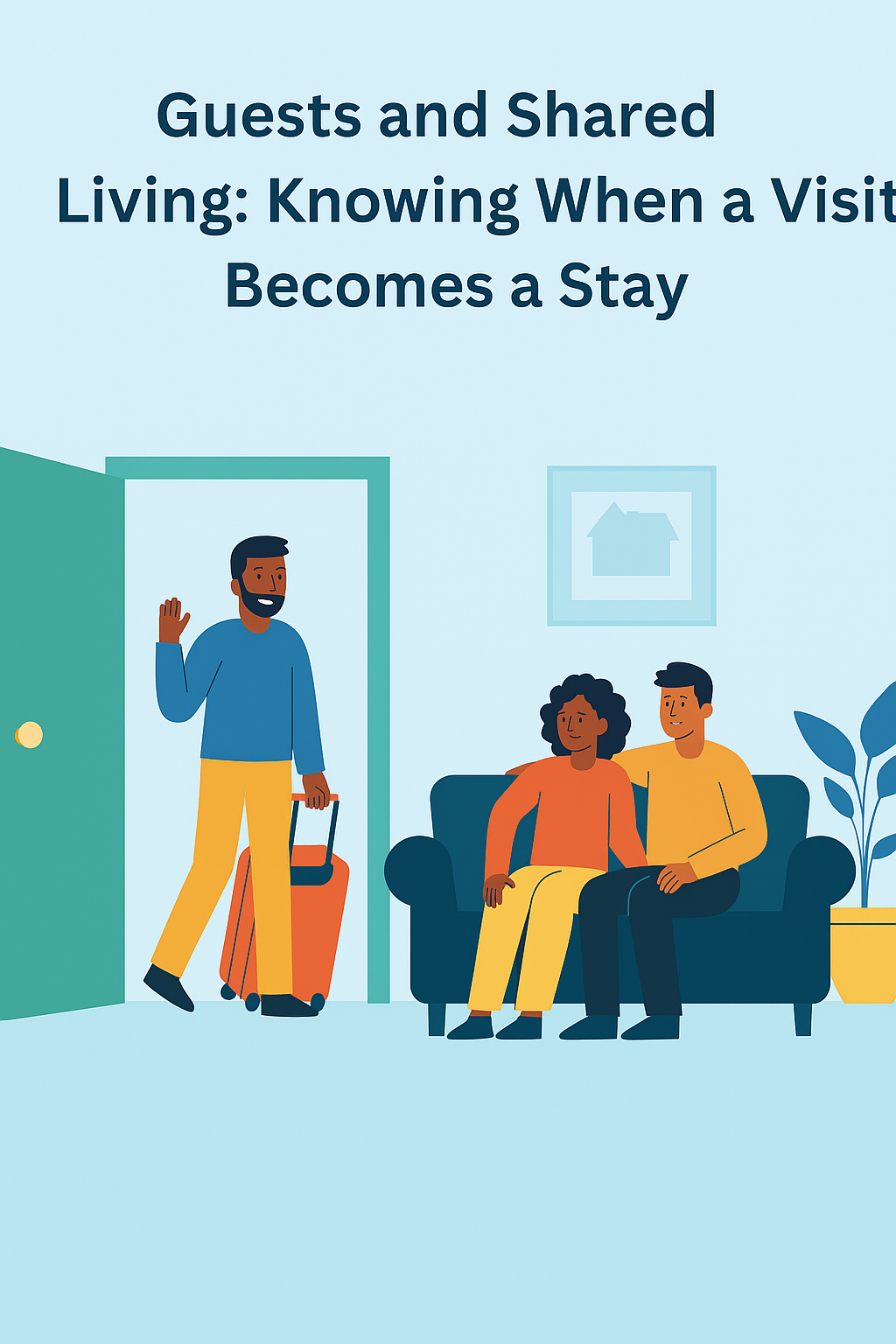
Guests and Shared Living: Knowing When a Visit Becomes a Stay
In a shared living home, it’s natural to want to have guests over. A friend, family member, or significant other visiting for a night or two is perfectly reasonable — after all, you live there, and your home should feel comfortable and welcoming.
But there’s a line between having company and unofficially adding a new housemate. When that line blurs, shared living starts to feel unfair to others. That’s why SharePad’s guest policy follows a “weekend model” — up to two overnight stays per week — a balanced approach that allows for a healthy social life without disrupting household harmony.
As the old saying goes, “Guests, like fish, begin to smell after three days.” Even when someone is perfectly pleasant, the dynamic of the home changes when another person is using the bathroom, kitchen, or common spaces regularly. In a household with one bathroom, it doesn’t take much for hot water, patience, or privacy to start running out.
Why Guest Limits Exist
Guest limits aren’t about control — they’re about fairness. When you live with others, everything from utilities to water pressure is shared. One person’s frequent visitor means more shower time, extra laundry, higher utility costs, and less comfort for others who also pay rent.
The weekend model keeps things simple: occasional visits are fine, but extended overnight stays are not. Having a guest stay for more than two nights per week can actually become a violation of house rules, depending on the lease terms. The idea isn’t to discourage relationships or friendships — it’s to make sure everyone gets equal use and enjoyment of the home.
Communication Makes All the Difference
Good communication can prevent almost every type of tension around guests. If you’re seeing someone regularly, or plan to have a few people over to watch a movie, a quick heads-up goes a long way. It’s both considerate and inclusive to say something like:
“Hey, I was thinking about having a couple friends over for a movie night — you’re totally welcome to join us if you’d like!”
Even if your housemate says no, the simple act of inviting them builds trust and comfort in the home. It also prevents that uneasy feeling of surprise when someone comes home to unfamiliar faces in the living room.
And when it comes to overnight visitors, being upfront shows maturity and awareness. For example:
“My partner might stay over one or two nights this week — I wanted to make sure that’s okay with everyone.”
That kind of transparency earns respect and avoids misunderstandings before they happen.
When It Becomes Too Much
If your guest starts keeping clothes, using the bathroom daily, or being around more than you are, they’ve quietly transitioned from visitor to unofficial resident. That’s when things get complicated — lease agreements, utilities, and safety rules are built for a specific number of people. Having an extra “invisible roommate” affects everyone’s experience, both legally and personally.
A Good Rule of Thumb
If you can imagine your guest being around all weekend and it still feels comfortable for everyone else, you’re probably within reason. But if housemates start tiptoeing around, waiting for the bathroom, or retreating from common spaces, it’s time to rethink the balance.
Think of it this way: a good guest leaves everyone looking forward to their next visit, not relieved when they leave.
Shared Living Works When It’s Shared Fairly
At SharePad, the focus is on creating homes where adults can live affordably, comfortably, and respectfully together. Having a clear guest policy is part of what keeps that structure in place — so everyone can enjoy community living without the stress of unclear boundaries.
In short: communicate early, stay considerate, and remember that fairness keeps the house running smoothly. Guests should bring warmth and connection, not tension — and when everyone follows that mindset, shared living works exactly as it should.